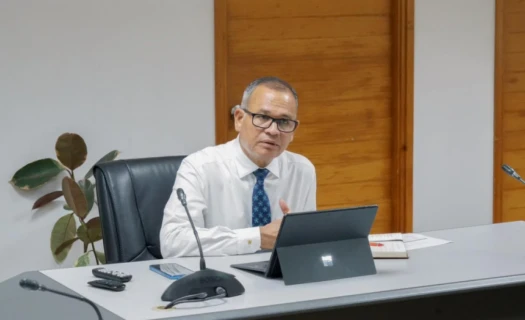Thu, 19 Feb 2026
|DHIVEHI
Developed nations pledge USD 300 billion to assist vulnerable countries at COP29
24 Nov 2024
|

Photo: Social Media
Developed nations have pledged USD 300 billion to assist vulnerable countries in tackling climate change, following the 29th Conference of the Parties (COP29) under the United Nations Framework Convention on Climate Change (UNFCCC) in Azerbaijan.
The agreement, reached after 33 hours of intensive negotiations, marks a significant milestone in global climate cooperation.
The pledged funding, sourced from both government grants and private sector contributions, aims to support vulnerable nations in their transition from fossil fuels to renewable energy and bolster efforts to prepare for the impacts of climate change.
The agreement includes provisions to triple the funding allocated for climate adaptation, addressing concerns that historically only 40% of climate funds have been directed toward such efforts.
The agreement comes amid tensions, with small island nations expressing dissatisfaction over the pace of progress. Cedric Schuster, chair of the Alliance of Small Island States, walked out of earlier talks, citing the existential threat posed by rising sea levels to island nations.
However, after revisions were made to the deal, broad support was secured, although countries such as India expressed frustration over weakened commitments to reducing fossil fuel use.
In addition to the USD 300 billion pledge, the agreement underscores the need for an estimated USD 1.3 trillion by 2035 to combat climate change.
Several countries, including the UK, presented ambitious plans to reduce emissions, with Prime Minister Keir Starmer pledging an 81% reduction in carbon emissions by 2035.
COP30 is scheduled to take place in Belém, Brazil, next year, in recognition of President Lula's commitment to combating deforestation in the Amazon rainforest.
Despite the progress made, some nations, including the Maldives, Switzerland, Canada, and Australia, expressed concerns that the deal did not place enough emphasis on reducing fossil fuel dependency, highlighting ongoing divisions within the global climate community.








